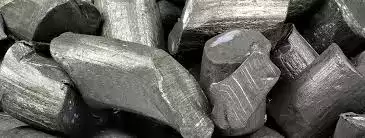Savannah CEO sees lithium price rebound by start of Portugal project

Prices of lithium, which is used in batteries for electric cars and appliances, have fallen more than 80% in the past year largely due to overproduction from China and a drop in demand for electric vehicles.
The success of projects like Savannah Resources' in Portugal is seen as a key test of Europe's ability to reduce its dependence on imports from China and other countries of lithium and other materials essential to the green transition.
"The fundamentals are stronger than ever. The market will very likely come back into deficits (of supply) from 2027 onwards and that actually fits very well with what we are doing and with our timeline," he told industry analysts.
Savannah expects to bring the Barroso project onstream "as early as possible in 2027", he added.
Acknowledging that the period of depressed prices was lasting "slightly longer than we would expect", Proenca expected global lithium demand to grow by 2.6 times in the next seven years "with an acceleration from 2027, which will be very difficult to satisfy by supply."
His confidence in a recovery echoes that of Jakob Stausholm, CEO of Rio Tinto which said on Wednesday it would buy U.S. based Arcadium Lithium for USD 6.7 billion in a deal that would catapult it to become the world's third largest miner of the metal.
On concerns about demand for EVs, Proenca said the EV market was still growing at a strong pace.
Last month, Savannah postponed the planned production start by a year to 2027, citing a change of government in Portugal.
The new centre-right government took over in April after the collapse of the previous Socialist administration, in part due to a scandal over alleged illegalities in its management of several investment projects, including lithium.
The company wants to build four open-pit mines in the northern Barroso region to extract enough lithium each year for about half a million EV batteries.
The project has faced strong opposition from local residents and environmentalists and Proenca said at least one group of land holders was still opposed to it, but that should not impede the project.

